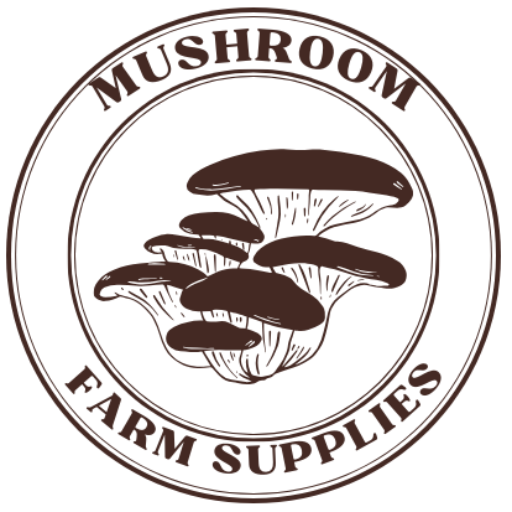Hemlock Reishi Ganoderma Tsugae
In the mystical realm of fungi, there exists a species that has captivated the human imagination for centuries. The Hemlock Reishi (Ganoderma tsugae), a close relative of the famed Ganoderma lucidum, is a rare and enigmatic mushroom. This unassuming fungus, often found growing on Eastern Hemlock trees in the forests of North America, hides a world of medicinal and cultural significance within its delicate, polypore cap. We will embark on a journey into the realm of Hemlock Reishi, exploring its historical uses, medicinal properties, and its cultural symbolism.
Historical Significance of Hemlock Reishi
Hemlock Reishi, also known as the Eastern Hemlock Varnish Shelf, has a rich history in indigenous cultures and traditional medicine. Native American tribes, particularly the Iroquois, have long recognized its healing potential. They brewed teas from this species to treat a wide range of ailments, from digestive issues to infections. The Eastern Hemlock tree itself, the primary host of Hemlock Reishi, was also revered for its uses in construction and medicine.
Interestingly, the Iroquois name for the Hemlock tree, “Hah-thu-skah-sah,” also referred to the Hemlock Reishi growing on it, reflecting the intimate connection between the tree and the mushroom in their culture. The Algonquin people, too, incorporated Hemlock Reishi into their healing traditions. This historical usage serves as a testament to the mushroom’s reputation as a potent natural remedy.
Medicinal Properties of Hemlock Reishi
- Immune System Support
Hemlock Reishi shares many of the medicinal properties with its better-known cousin, Ganoderma lucidum. One of the most notable benefits is its potential to enhance the immune system. The mushroom contains bioactive compounds, including triterpenoids and polysaccharides, which are believed to strengthen the body’s defense mechanisms. These compounds stimulate the production of white blood cells, such as macrophages and T-cells, helping the body combat infections and illnesses.
- Anti-Inflammatory Effects
Chronic inflammation is a common underlying factor in many diseases. Hemlock Reishi has been studied for its anti-inflammatory properties. Compounds within the mushroom may help reduce inflammation by modulating the immune response and inhibiting pro-inflammatory signals. This makes it a potential candidate for the management of conditions linked to inflammation, such as arthritis and autoimmune disorders.
- Adaptogen and Stress Reduction
In traditional Chinese medicine, Reishi mushrooms are considered adaptogens, which means they can help the body adapt to stress and maintain balance. Hemlock Reishi may have similar adaptogenic properties. It is believed to support the adrenal glands, promoting a balanced response to stress and reducing the negative impacts of chronic stress on the body.
- Antioxidant Effects
Hemlock Reishi is rich in antioxidants, compounds that help combat oxidative stress and free radicals in the body. The antioxidants found in the mushroom, such as polyphenols, can protect cells and tissues from damage, potentially reducing the risk of chronic diseases and supporting overall health.
- Liver Health
In traditional Chinese medicine, Reishi mushrooms have been used to support liver health. Hemlock Reishi may have similar effects. Compounds in the mushroom can help protect the liver from damage and support its detoxification processes, potentially benefiting individuals with liver conditions.
Cultural Symbolism
In many cultures, Hemlock Reishi has deep-rooted symbolism and spiritual significance. Its striking appearance, with a glossy, reddish-brown cap and contrasting white undersides, is reminiscent of an ancient lacquered vase, making it a symbol of longevity and immortality in Chinese culture. The name “Reishi” itself is derived from the Japanese “rei” (spiritual) and “shi” (mushroom), emphasizing its spiritual importance.
- Immortality and Longevity
In traditional Chinese art, Reishi mushrooms are often depicted alongside Taoist sages and immortals. They represent the quest for longevity, wisdom, and spiritual enlightenment. Emperors and nobility sought the elusive Hemlock Reishi as a symbol of eternal life.
- Spiritual Enlightenment
In Taoism, Hemlock Reishi is believed to enhance spiritual growth and meditation practices. It is thought to help open the “third eye,” promoting self-awareness and insight. The mushroom’s unique growth pattern, often forming a circular shelf, has been associated with the cyclical nature of life, death, and rebirth.
- Modern Cultural Relevance
Today, the symbolism of Hemlock Reishi is not confined to Eastern cultures. It has found its way into Western herbalism, holistic healing, and modern spirituality. Many people view Hemlock Reishi as a bridge between traditional wisdom and contemporary wellness practices, recognizing its potential to promote both physical and spiritual well-being.
Conservation Concerns of Hemlock Reishi
The Hemlock Reishi’s habitat and host tree, the Eastern Hemlock, face significant threats in modern times. The Eastern Hemlock tree has been severely impacted by the invasive Hemlock Woolly Adelgid (Adelges tsugae), an insect pest that weakens and kills the trees. As the host tree’s population diminishes, so does the habitat of the Hemlock Reishi.
Conservation efforts are essential to protect both the Hemlock tree and the Hemlock Reishi mushroom. Some organizations work to combat the spread of the Hemlock Woolly Adelgid and save the Eastern Hemlock from extinction. By preserving the host tree, we indirectly safeguard the unique habitat where Hemlock Reishi thrives.
Hemlock Reishi
Hemlock Reishi, the enigmatic mushroom growing on Eastern Hemlock trees, has a rich history, impressive medicinal properties, and deep cultural symbolism. Its significance spans indigenous traditions, ancient Chinese mythology, and modern wellness practices. As we continue to unlock the secrets of this mystical fungus, it is vital to conserve its habitat and host tree for future generations to benefit from its healing potential and connect with its cultural mystique. The Hemlock Reishi stands as a reminder of the interwoven relationship between nature, culture, and the human quest for both physical and spiritual well-being.
